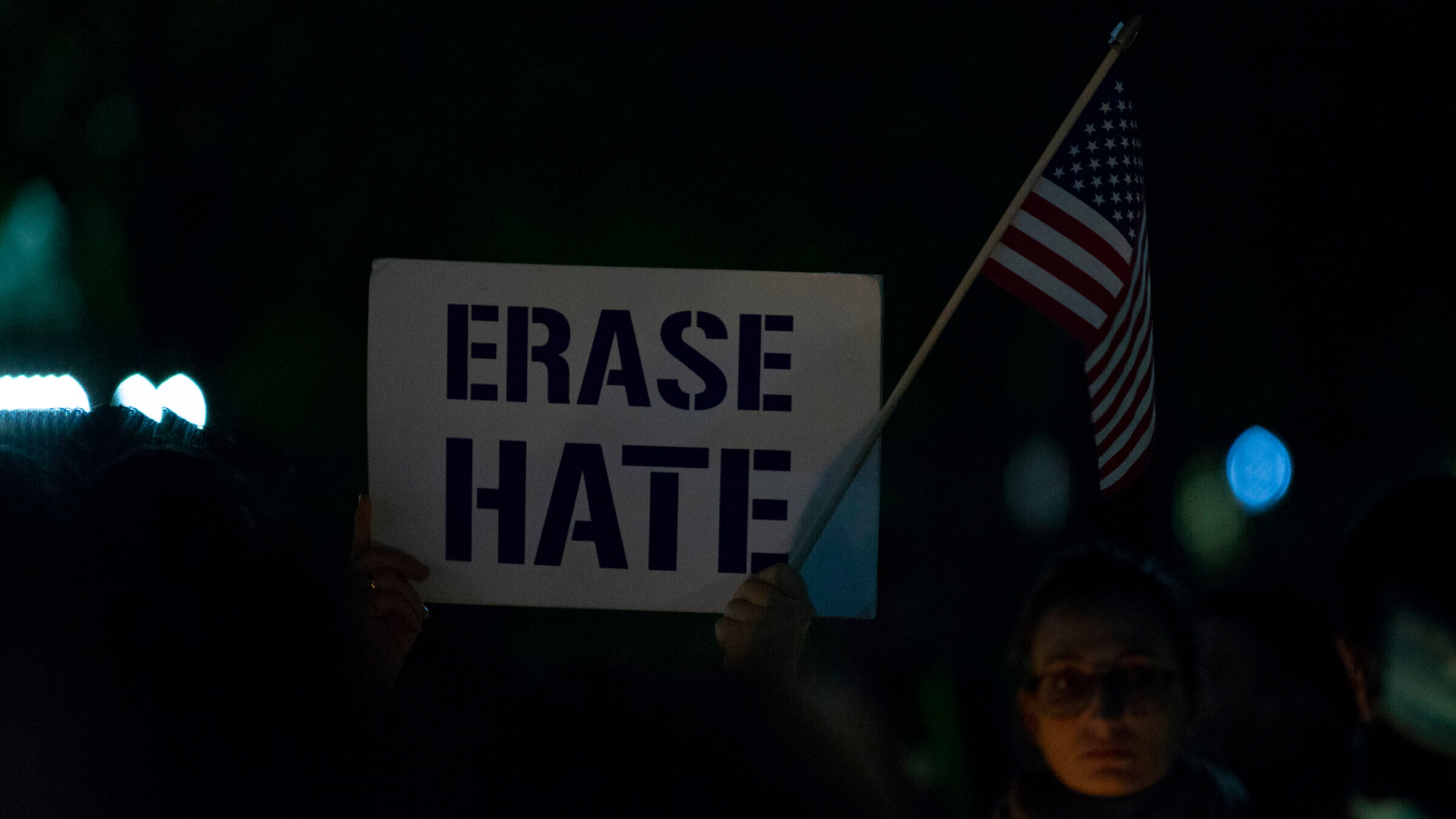Risk of hate crimes against Jews and others could rise as 2024 election nears, report says
The authors called on social media companies to deplatform extremists and for Congress to mandate reporting hate crime data

“Erase Hate” sign at a 2018 vigil in Washington, D.C., for the victims of Pittsburgh’s Tree of Life Congregation shooting. Photo by Alex Edelman/Getty Images
Jews and other minority groups may face more hate crimes as the next presidential election approaches, according to a new report.
The paper, published by the Leadership Conference Education Fund, a civil and human rights nonprofit organization, examined FBI data on hate crimes in 2021, the most recent year for which data is available.
That year saw 817 anti-Jewish incidents, an increase of 20% from 2021. That increase came despite numerous police departments across the country declining to share their hate crime data with the FBI.
While Jews were the most targeted of any religious group, crimes against Jews made up just a fraction of the more than 10,800 total hate crimes identified.
Statistical bumps preceding election years
The new paper looked at hate crime data around the past four presidential elections and found statistical bumps in the year preceding each one. Of particular note was the 2016 election which brought Donald Trump to the presidency. According to the paper, hate crimes have been on the rise since 2015, the year Trump announced his candidacy.
While the rise in hate crimes is not entirely attributable to the white supremacist and nationalist movements, the report pointed to recent statements from FBI officials listing those movements as among the top domestic threats faced by the United States. Those movements often traffic in antisemitic conspiracy theories, including the “great replacement theory,” one version of which claims that Jews are masterminding an effort to undermine white hegemony by pushing for mass immigration of people of color.
The report contained several recommendations to help avoid a similar rise in hate crime ahead of the 2024 election. Those included having social media companies work to deplatform bad actors, with a focus on livestream services favored by some white nationalists; having law enforcement crack down on extremist groups without ramping up policing infrastructure that has historically been used to target vulnerable minority groups; and enacting legislation that would make it mandatory for law enforcement bodies to share hate crime data.





















